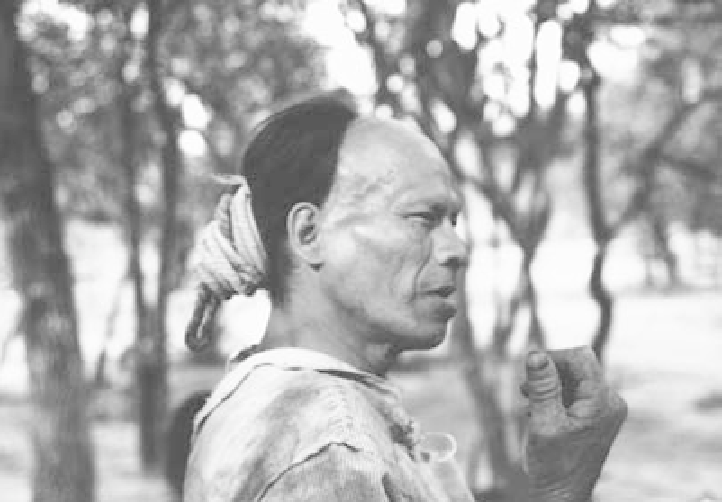Geography Reference
In-Depth Information
ries and then leaving. It was even more disturbing when you realize it's
like looking in a mirror.
I'll never forget the first time I met Ujñari. Already old in his late fifties,
he was a striking sight. His diminutive body was bowed and misshapen
as if time was a physical weight. His hairline was permanently recessed
by repeated plucking and burning, to resemble the vulture-spirit who had
promised him eternal life in that time everyone called
nanique
, before.
His eyes were sunk into the taut face of the starving. Clothed in an over-
sized green T-shirt from Gino's Pizza in Toledo, Ohio, tattered jeans sewn
together with plant-fiber twine, bare feet the color of old ashes, standing
a little apart from the others in the village of Arocojnadi.
Of course, I'd seen him in photographs on fund-raising brochures pub-
lished shortly after he made “first contact” in 1998, looking serene and
strong. His image had circled the globe and it had given cachet to the
NGO charged by the state with his well-being. I had already heard the
outlines of his story. That his family were Totobiegosode outcasts, that
his dying father had told him to marry his sister so that not all signs of
them would be erased forever. He had done so, and they had five chil-
dren together. Until 1998—when he and his family walked out of the
forest, trying to talk to a Paraguayan ranch hand who promptly shot at
them—these people had been his entire social world. I learned that the
woman who was his sister and wife had left him for an aspiring preacher
shortly after they came out.

